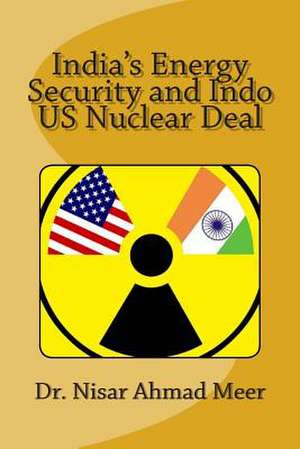India's Energy Security and Indo - Us Nuclear Deal
Autor Dr Nisar Ahmad Meeren Limba Engleză Paperback
Preț: 49.53 lei
Nou
Puncte Express: 74
Preț estimativ în valută:
9.48€ • 10.13$ • 7.90£
9.48€ • 10.13$ • 7.90£
Carte disponibilă
Livrare economică 27 martie-10 aprilie
Preluare comenzi: 021 569.72.76
Specificații
ISBN-13: 9781508474012
ISBN-10: 150847401X
Pagini: 86
Dimensiuni: 152 x 229 x 5 mm
Greutate: 0.13 kg
Editura: CREATESPACE
ISBN-10: 150847401X
Pagini: 86
Dimensiuni: 152 x 229 x 5 mm
Greutate: 0.13 kg
Editura: CREATESPACE
